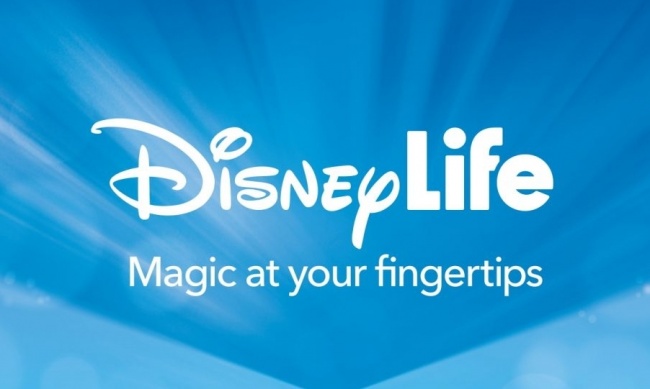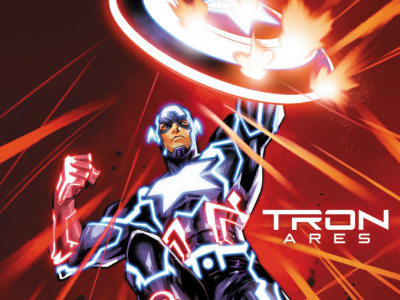Two big non-comics announcements last week may set in motion a serious disruption of the comics marketplace. The first, which you may have heard of, was the launch of the new Apple TV, the tech giant’s bid to make the biggest screens in our home resemble the app-centric universe of iPhones and iPads. The second, which you might have missed, was Disney’s announcement of a streaming media subscription service.
Not just a new device – a new platform. Apple has big ambitions for the next generation of its Apple TV device to stream media to your television. The model released last week includes a whole operating system (tvOS) and an app store to mirror the existing ecosystem for iPhones and iPads. Apple’s vision is to replace channels with apps, giving you more choices for the content you can receive and greater control over what content you want to pay for compared to the current cable system.
One of the content types they are featuring heavily? Comics.
Apple playing with Fire. The digital comics and motion book platform Madefire was front and center in the Apple TV launch. Apple Senior VP Eddy Cue demoed Madefire on stage at the Apple keynote event in September and called the company out by name for bringing a new kind of content to the screen. The review in The New York Times led with comics as a new, differentiating feature.
Whether any of this will translate to sales remains to be seen. Though their products are charismatic, their inventory has grown to include DC, IDW and other content, and they still have in-app purchasing on iOS, Madefire has not made much of a dent in the digital comics market since they launched in 2012, and it’s uncertain whether there is an audience for motion comics on a larger screen. But they have Apple at their back, which ain’t nothing.
Begun, the living room war has. If Apple is successful in opening a new front for digital comics to reach a wider audience, you can bet that Amazon – which has a much larger digital comics footprint with comiXology and its own TV device, FireStick – won’t be far behind. And unlike Apple, which limits in-app commerce to digitally delivered content only, Amazon could easily include one-click merchandise sales in their TV-based cross-media search and discovery as well. If they jump in, it will be off to the races.
A new platform and a new audience for comics is potentially great news all around. The real stumbling block here might not be the technology but the business model.
As mobile and tablet-based content, digital comics compete with other apps, which are roughly in the same $0.99-$3.99 price range and deliver a comparable entertainment payload. On the TV screen, they’ll compete with movies, games and video content offered on a monthly subscription basis.
So what sounds like a better bargain – three 22-page motion comics at $3.99 each, or a month of Netflix? Or maybe a monthly subscription to unlimited Disney and Pixar content that spans multiple devices and platforms?
Disney disintermediated. That last example is not theoretical. This week Disney quietly announced a new service called DisneyLife, which "will offer its movies, television series, books and music direct to the consumer online," according to a report in Variety. The service is, for the moment, aimed at Europe and the U.K., but Disney CEO Bob Iger "wouldn’t rule it out" for the U.S. once existing licensing agreements with other media services come up for renewal.
The current European version of DisneyLife specifically excludes Marvel and Star Wars properties, but again, Iger hinted they could be in store in the future. The publishing trade journal Book Business presented an even more provocative quote:
"This is the future, in many respects," said Iger. "We’re seeing more and more opportunities to reach consumers directly and not through middlemen… DisneyLife is a great example of our strategy to utilize technology to connect with consumers in more direct and compelling ways."
That phrase "not through middlemen" should scare an awful lot of people.
Ripping the scab off an old wound. Disney is talking about a media distribution system that has already been heavily disrupted: most video rental and CD shops are already out of business, and streaming is already displacing paid downloads for music and video. But for comics, sales of physical goods at retail, principally through the direct market, still account for over 85% of comics and graphic novels according to the most recent ICv2 market analysis, and almost all digital sales are per-unit, not subscribed.
Digital comics currently co-exist with paper in a symbiosis that few would have predicted back in 2010 or 2011, due in large part to pricing parity between digital and physical issues on the day and date of release. The market even accommodates subscription-based pricing for back issues through services like Marvel Unlimited, Scribd, and newcomer ComicBlitz, which don’t compete for same-day business.
Subscription-based pricing for new comics, driven by dynamics on the platform and media side, could shatter the truce if publishers start feeling pressure from apps streaming live and new content to TVs, tablets and mobile devices. That could happen if consumers start viewing comics, games, live and pre-produced media as equal competitors for their time and money, which converged platforms like Apple TV implicitly encourage them to do.
Not everyone is concerned. "I think the market is large enough for multiple buying models," says Ted Adams, CEO and Publisher at IDW, whose titles are a big part of the Apple TV/Madefire launch. "I have a Netflix subscription, but I still buy individual movies and TV shows. It depends on the consumer and what they want."
But if Disney – and thus Marvel – embrace subscription-based new streaming content through a branded app, that could put every publisher, every distributor and every retailer in a very different situation.
--Rob Salkowitz (@robsalk) is the author of Comic-Con and the Business of Pop Culture.
The opinions expressed in this column are solely those of the writer, and do not necessarily reflect the views of the editorial staff of ICv2.com.

Column by Rob Salkowitz
Posted by Rob Salkowitz on November 2, 2015 @ 4:49 pm CT
MORE COMICS
At AnimeNYC
August 22, 2025
The winners of the 2025 American Manga Awards, organized by AnimeNYC owner LeftField Media and Japan Society, were announced in a ceremony at AnimeNYC in New York on August 21.
From Marvel Comics
August 22, 2025
This October, Marvel Comics celebrates the release of TRON: Ares with new variant covers.
MORE COLUMNS
Column by Jeffrey Dohm-Sanchez
August 21, 2025
ICv2 Managing Editor Jeffrey Dohm-Sanchez continues to take a look at some of the issues revolving around Universes Beyond products.
Column by Rob Salkowitz
August 19, 2025
For Horror Week, columnist Rob Salkowitz asks whether the horror boom can help get us through a moment full of woe and dread.








